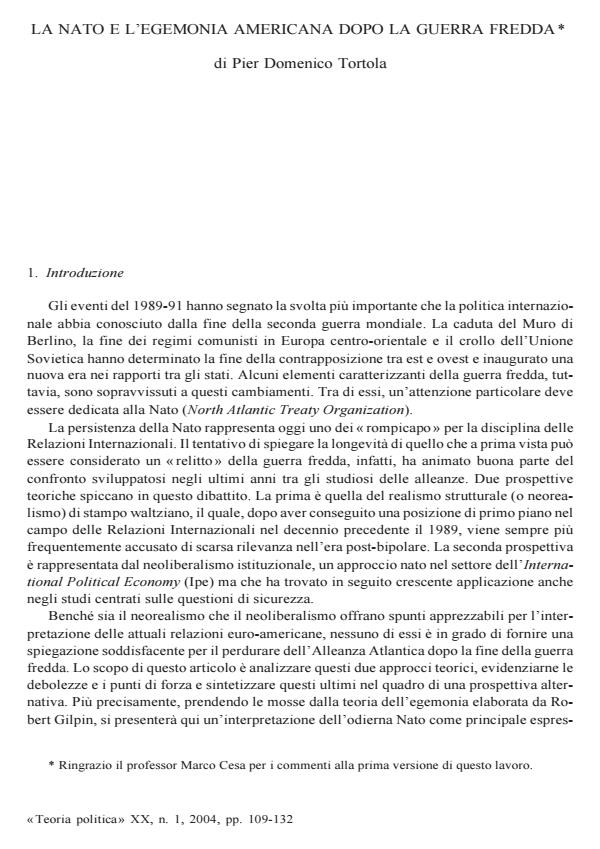La Nato e l'egemonia americana dopo la guerra fredda
Titolo Rivista TEORIA POLITICA
Autori/Curatori Pier Domenico Tortola
Anno di pubblicazione 2004 Fascicolo 2004/1
Lingua Italiano Numero pagine 24 P. Dimensione file 78 KB
DOI
Il DOI è il codice a barre della proprietà intellettuale: per saperne di più
clicca qui
Qui sotto puoi vedere in anteprima la prima pagina di questo articolo.
Se questo articolo ti interessa, lo puoi acquistare (e scaricare in formato pdf) seguendo le facili indicazioni per acquistare il download credit. Acquista Download Credits per scaricare questo Articolo in formato PDF

FrancoAngeli è membro della Publishers International Linking Association, Inc (PILA), associazione indipendente e non profit per facilitare (attraverso i servizi tecnologici implementati da CrossRef.org) l’accesso degli studiosi ai contenuti digitali nelle pubblicazioni professionali e scientifiche.
NATO’s persistence (and enlargement) after the end of bipolarity is today a major riddle of international relations theory. Attempts to justify the endurance of what has often been called a «Relic of the Cold War» so far have been led by two main schools of thought, namely Waltzian Structural Realism and the New Liberal Institutionalism. Although both approaches offer valuable aids to understanding today’s Euro-American relations, neither of them can provide a full explanation of the survival of the Atlantic Alliance after 1989-91. The aim of this article is to analyse these two perspectives, identify their shortcomings and their strong points, and synthesize the latter into an alternative theoretical framework. More specifically, building on Robert Gilpin’s hegemonic theory, the author offers an interpretation which posits the Atlantic Alliance as the chief institutional provider of security as a public good within the current US-led international system. In order to substantiate these assertions, he then analyses the evolution of NATO’s attitude towards the external environment as it results from the two Strategic Concepts elaborated by the North Atlantic Council after 1989.
Pier Domenico Tortola, La Nato e l'egemonia americana dopo la guerra fredda in "TEORIA POLITICA" 1/2004, pp , DOI: